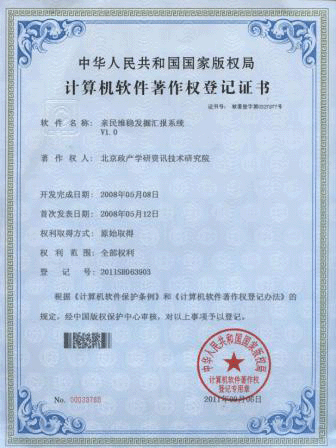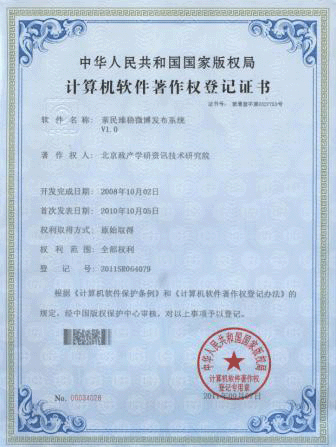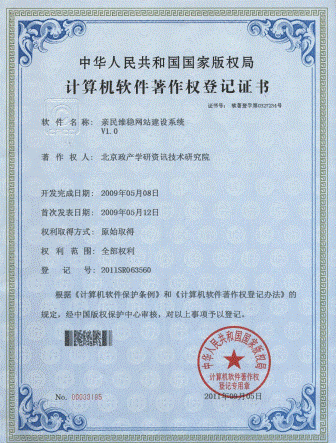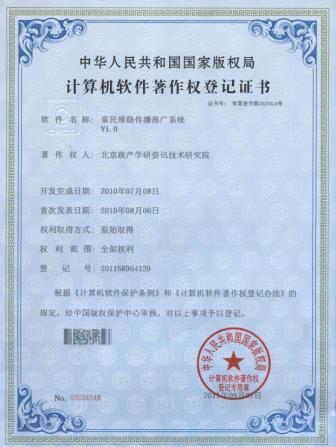亲民维稳热点推荐
- ·Libor监管离不开美国的积极参与--亲
- ·海通证券上半年净赚20亿同比降9%--亲
- ·浙江现象的启示--亲稳网络舆情监测室
- ·B股屡屡“吓坏”A股 制度改革箭在弦
- ·“银行系垫底公司”总经理离职幕后--
- ·宋冰接手蔡金勇 高盛高华首位女性总
- ·基建投资热潮下 警惕平台贷风险抬头-
- ·德国联邦外贸与投资署:欧债危机未影
- ·中国银行业加快融入全球化浪潮--亲稳
- ·DIY货币——重建熟人社会--亲稳舆论
- ·美国能源市场恐受波及--亲民维稳网络
- ·财经-宜信财富中国财富管理系列论坛
- ·孟文能:让金融业回归本质--亲稳舆论
- ·国际油价止跌反弹国内成品油调价添变
- ·万得诉同花顺侵权索赔近亿元--亲稳网
- ·金融秩序重构--亲稳网络舆情监测室
即刻使用亲民维稳解决方案!

发掘汇报软件
亲民维稳相关链接
- ·出台扩大股转系统试点范围方案--亲稳
- ·出台扩大股转系统试点范围方案--亲稳
- ·一周财讯--亲民维稳网络舆情监测室
- ·张承惠:不差钱的金融市场难匹配城镇
- ·专家称银行应适应互联网需求--亲稳舆
- ·理顺机制尤为重要(明星教授)--亲稳
- ·假新闻袭击金融--亲稳舆论引导监测室
- ·支付行业快速扩张--亲民维稳网络舆情
- ·“三马”闯两江--亲稳网络舆情监控室
- ·“金融创新不足”致结构调整举步维艰
- ·IMF:中国内需支持亚洲经济--亲民维
- ·小摩:2013年全球经济增速2.4%--亲稳
- ·对外资产结构失衡FDI撤资风险、资产
- ·一季度北京金融业增加值619亿元 同比
- ·分析机构预测:汽油将微涨0.06-0.09
使用亲民维稳全套解决方案邀请
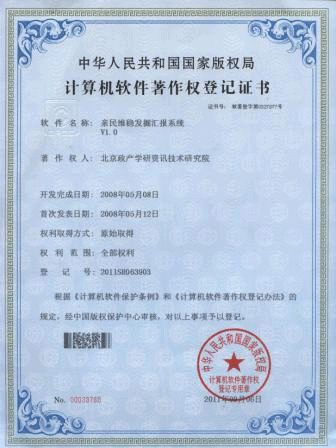
亲稳发掘汇报系统
日本金融改革借鉴及其启示--亲稳舆论引导监测室
2013-03-15
中信证券(600030,股吧)研究团队
Citic securities,(600030,stocks)The research team
The five stages of Japan's financial development
与美国20世纪相对独立的发展相比,日本近现代经济发展受外部因素影响较大,金融自由化进程总体而言较为曲折。按时间段划分,可以将日本金融发展分为如下五个阶段:
Compared with the relatively independent development of the 20th century,Japan's modern economic development are greatly influenced by external factors,Financial liberalization process in general is more twists and turns.According to the time period partition,Japan's financial development can be divided into the following five stages:
现代金融体系的建立。明治维新第四年(1871年)颁布《新币条例》,意在推进包括发行纸币在内的货币改革,这标志着日本近代金融体系建立的起点,1897年《货币法》正式确立现代货币制度。1872年根据《国立银行条例》建立私人银行,1882年通过《日本银行条例》并创设中央银行(日本银行)。到二战前,日本作为后进资本主义国家,基本形成了现代金融体系,但在操作层面仍有诸多不规范之处,包括商业银行插手产业金融、央行提供股票担保等。
The establishment of a modern financial system.In the fourth year of the Meiji restoration(In 1871,)issued[New regulations],Intended to promote, including issuing notes, currency reform,This marks the starting point of Japan's modern financial system is set up,In 1897,[Tender laws]Formally established the modern monetary system.In 1872, according to the[The national bank act]Established private Banks,Passed in 1882[The bank of Japan act]And created the central bank(The bank of Japan).To the front of the second world war,Japan as last in capitalist countries,The basic formation of the modern financial system,But in practice there are still many non-standard place,Including commercial Banks step in financial industry/Central Banks provide stock guarantee, etc.
战争时期的特殊金融。1938年日本侵华战争期间通过《国家总动员法》要求金融当局最大限度挖掘资金来源并优先将资金分配给军需工业有关部门,1942年通过《新日本银行法》和《金融事业整备令》将日本银行业置于政府控制之下。战争期间政府还建立了“战时金融金库”和“金融统制会”保证资金吸收和统筹运用。
Special financial war.During the war of aggression against China by Japan in 1938[National general mobilization law]Requires financial authorities maximum mining sources and priority will be assigned to the military-industrial complex is the department concerned,Passed in 1942[New Japan's banking laws]and[Financial gearing up to make business]Japan's Banks under government control.The government has also established during the war"Wartime financial vault"and"Financial control will"Ensure that funds are used to absorb and to plan as a whole.
战后经济复兴的金融支持时期。战后日本经济实现了超过20年的高速增长,拉动经济高速增长的重要力量是高投资率,而金融体系对此形成明显贡献。在低利率政策引导下,日本商业银行向企业提供了廉价的长期资金来源,一方面保证企业稳定的经营环境,以利于企业长期经营决策有效,另一方面商业银行自身成为企业集团的核心,主导推行各项产业政策。
Post-war economic reconstruction and financial support.Postwar Japan's economy for more than 20 years of rapid growth,Drive economic growth important strength is high investment rate,The financial system has been a contribution.Under the low interest rate policy to guide,Japanese commercial Banks provided a cheap source of long-term funds to enterprises,On the one hand, guarantee the stability of enterprise's management environment,To facilitate effective enterprise long-term business decisions,On the other hand, commercial Banks become the core of the enterprise group itself,Dominate the implementation of industrial policies.
金融自由化形成泡沫经济时期。上世纪70年代中期日本经济增长逐渐向低速增长过渡,长期信用银行份额下降;同时日元实行浮动汇率制加大国际化压力。1981年新版《银行法》公布实施进一步推动银证分离,1984年《关于金融自由化与日元国际化的现状与展望》发表则标志着金融改革的全面推进,国际社会的干预与压力也加速了这一进程。但是日本金融业超越实体经济的高速发展过度依赖资产价格,资产泡沫破裂后银行体系遗留大量不良债权。
Liberalization of the financial bubble economy period.In the mid - 1970 - s Japan's economic growth gradually transition to a low speed growth,Long-term credit Banks share decline;At the same time the yen float increase the international pressure.In 1981, the new[The banking act]Further promote the implementation of silver-colored card separation,In 1984,[About the present situation and prospect of financial liberalization and internationalization of the yen]Published, marks the comprehensive progress of financial reform,Intervention and the pressure of the international community also speed up the process.But the Japanese financial industry beyond with the rapid development of real economy overly dependent on asset prices,The banking system after the bursting of asset bubbles left a lot of bad creditor's rights.
金融大爆炸时期。泡沫经济的破灭使得银行业进入兼并重组大潮,1993年《关于为了金融制度以及证券交易制度的改革完善有关法律的法律》实施进一步放松银行经营证券业务的限制。1996年,日本提出“金融大爆炸”,加快之前循序渐进的放松管制步伐,全面实现国内外资本账户的自由化,改革证券市场,放松对银行业的管制。21世纪初,日本基本形成了开放程度高、管制力度小的金融市场。
The financial big bang.The bursting of the bubble economy, banking into the tide of m&a,In 1993,[About to financial institutions and securities trading system reform and perfect the relevant law of the law]Implementation of further easing Banks operate securities business.In 1996,,Japan put forward"The financial big bang",To speed up the pace of a gradual deregulation before,Fully liberalise their capital account at home and abroad,Reform of the securities market,Relax restrictions on banking.At the beginning of the 21st century,Japan's basic formed a high open degree/Efforts to control small financial markets.
金融体系的存在与发展,使高度复杂精细的分工和富有效率的生产方式成为可能,令资金盈余主体的资金顺畅的流入资金赤字主体,并且通过创新和竞争促使资金流向最有效发挥其功能的方向。虽然日本近代经济经历了明显波折,但二战后日本金融体系在国民经济中的渗透率和重要性持续提升,对日本经济尤其是关键产业的发展起到了不可替代的作用(见图1)。
The existence and development of the financial system,Make highly elaborate division of labor and efficient mode of production is possible,Make capital surplus funds smoothly the inflow of capital deficit subject,And through the innovation and competition brings the capital flow to the most effective function of direction.Although Japan's economy has experienced in recent times obviously twists and turns,But after world war ii, the Japanese financial system in the national economy of the permeability and the importance of continued ascension,For the Japanese economy especially the development of key industry plays an irreplaceable role(As shown in figure 1).
借鉴一:金融自由化——经济转型的必由之路
Reference to a:Financial liberalization, the only way for the economic transformation
二战后的金融体系:政府管制下的间接金融
After the second world war in the financial system:Under the government regulation of indirect finance
国家干涉金融体系的雏形设计——复兴金融金库。在战后初期,日本经济恢复急需扩大生产,能源成为主要制约因素。为尽快提升煤炭和钢铁供应,日本学者提出了“倾斜式生产方式”,即将有限的资源优先分配给煤炭生产部门,据此带动其他部门全面复苏。在这种精神指导下,日本创设了类似于计划经济模式的“复兴金融金库”,为特定部门提供普通金融机构无法提供的特殊金融。复兴金融金库集中在1947~1949年发挥作用,贷款主要对象是煤炭、钢铁、电力等重点产业,其中煤炭业的设备投资资金几乎全部来自于复兴金融金库。
State intervention in the financial system of the prototype design, to revive the financial exchequer.At the beginning of the war,Japan's economic recovery in urgent need to expand production,Energy become the main factors.To improve coal and steel supply as soon as possible,Japanese scholars put forward"Tilting mode of production",The limited resources priority assigned to coal production,Full recovery according to other departments.In under the guidance of this spirit,Japan created is similar to the planned economy mode"To revive the financial vault",For the specific department to provide regular financial institutions can't provide the special financial.To revive the financial exchequer centralized in 1947 ~ 1949,Loan is the main object of coal/Iron and steel/Power key industries, etc,Including almost all coal industry equipment investment funds from the Renaissance financial coffers.
复兴金融金库的资金来源是政府拨款和特别债券,本质上是采用扩大信用的方式刺激生产,在有效提振煤炭、钢铁产量的同时也加剧了通货膨胀。从事后看,这种取舍使日本经济得以迅速复苏并把握住战后黄金发展期,是当时所能做出的最优选择。也正是从复兴金融金库开始,日本逐渐形成以国家为主导、以服务实体经济为导向的金融格局。
Renaissance of financial Treasury financing source is a special bonds and government funding,Is essentially used to expand credit way to stimulate production,In effective boost coal/At the same time also contributed to the inflation of steel production.After engaged in watch,This refusal to make Japan's economic recovery rapidly and seize golden development after the war,Is can make the optimal choice at that time.It is also starting to revive the financial exchequer,Japan gradually formed dominated by countries/To serve the real economy oriented financial structure.
确立政府管制下的间接金融体系——准入管制、分业管制、利率管制。在战后赶超欧美发达国家的大目标下,日本面临的首要课题是迅速恢复经济、实现经济自立。完成这一课题的主要途径包括:通过发展重化工业实现产业结构的高度自由化,通过不断扩大投资保持经济的持续增长。该过程中,需要保证重点产业能够持续获得长期资金,为实现这一目的,日本做出了两项重要判断:
Indirect financial system establishment under the government regulation - access control/Decentralized control,/Interest rate controls.Catch up with Europe and the United States after the war the goal of the developed countries,Japan's first task is to restore economic rapidly/Achieve economic independence.The main way to finish this subject including:Through the development of heavy chemical industries realize the liberalization of the height of the industrial structure,Maintain sustained economic growth by expanding investment.In the process of the,Need to keep key industries can continue to achieve long-term capital,In order to achieve this purpose,Japan made two important judgments:
一是以间接融资为主。明治维新后积累的存量财富在战争中消耗殆尽、战后初期的通货膨胀也压抑市场情绪,严重萎缩的资本市场不足以提供企业所需资金;对间接金融机构实行分业经营,可以有效使用有限的资金,同时保证金融体系的稳定。
One is the indirect financing is given priority to.After the Meiji restoration of the accumulated stock of wealth drained in the war/At the early stage of the postwar inflation is also depressed market sentiment,Severe atrophy of the capital market is not enough to provide the funds required for the enterprise;The indirect shall be adopted by financial institutions,Can effectively use the limited funds,At the same time to ensure the stability of the financial system.
二是管制与扶持并存。近代日本经济发展一直离不开政府主导和扶植,形成了典型的二元经济结构,即受政府扶植的大型垄断企业与依附于大型垄断企业的中小企业并存,在产业政策向重点行业重点企业倾斜的同时,也要保证中小企业能够获得基础金融服务;最终日本形成了管制严格、在国家和财团主导下运行的金融体系。为了建设和维护具有上述特征的金融系统,国家主要进行了三个层面的管制:准入管制限定机构(包括分支机构)数量(见图2),分业管制限定机构经营范围,利率管制限定机构定价行为。
Second, regulation and support.In modern times, the development of Japan's economy has been inseparable from the government leading and fostering,Formed a typical dual economic structure,That government support large monopoly and attached to large monopoly enterprises of small and medium-sized enterprises,In the industrial policy tilt to key industry key enterprises at the same time,Also to ensure that the small and medium-sized enterprises access to basic financial services;Japan eventually formed the regulation strictly/And is dominated by the consortium operating in the country's financial system.In order to build and maintain the financial system with the above characteristics,Mainly has carried on the three levels of control state:Access control qualified institutions(Including branch)The number(As shown in figure 2),Decentralized control, qualified agency business scope,Interest rate controls define institutions pricing behavior.
国家主导的间接融资体系不能适应新经济(310358,基金吧)发展的要求
Countries to the indirect financing system can not adapt to the new economy(310358,Fund it)The development of the requirements
战后日本将促进经济增长和稳定金融秩序列为金融监管的首要目标,具有前文所述特征的国家主导的简介融资体系正是在这一需要下应运而生。这种行政管理体制在战后很长一段时间内发挥了积极作用,为重点产业创造了长期稳定的资金来源,奠定了基础设施建设和制造业长足发展的基础。但是,随着经济发展阶段递进、金融体系格局深化,这一体系逐渐不能适应环境要求,表现在如下两个方面。
Postwar Japan financial order will promote economic growth and stability as the primary goals of financial regulation,Mentioned above characteristics of introduction of state-led financing system is under this need arises at the historic moment.The administrative system for a long period of time after the war has played a positive role,Create a long-term stable source of funding for key industries,Long-term development laid a solid infrastructure and manufacturing base.but,With the progressive stages of economic development/Pattern of deepening financial system,This system gradually can not adapt to environmental requirements,Displays in the following two aspects.
第一,不能适应经济发展阶段变化。(1)经济从非常时期到正常时期的变化。在战后经济复兴时期,在全局上存在超越局部利益目标,故此政府代替市场从短期和长期两个层面创造信用,为经济增长提供长期资金并承担对应风险。但是步入上世纪70年代以来,“经济复兴”这一特殊阶段已经基本结束,日本经济重回正常增长轨道,重点产业与基础建设已经进入良性运行通道,旧有的金融体系在一些领域效率低下的缺点逐渐暴露,政府应该逐渐淡化自身对金融体系的主导力。(2)经济发展从单一目标到多元目标的变化。在战后初期国民经济极度萎靡的背景下,集中全社会力量优先保证基础设施建设和生产资料制造是必要的,阶段经济发展单一目标对长远可持续发展有重大意义。但在这一目标基本达成后,经济发展转向多元目标,但诸如发展中小企业、保证民生投入、鼓励金融创新等事项均受到国家主导金融体系的制约,金融自由化是唯一出路。(3)从相对封闭到国际化的变化。战后初期日本对资本项目进行了较为严格的管制,许可流入的外资集中在利于改善国际收支和利于发展重点产业的项目,避免了对中小企业的压迫、对产业秩序的破坏和对国民技术(300077,股吧)发展的影响。1968年以后日本国际收支出现顺差,70年代后美元疲弱促使固定汇率制转向浮动汇率制,外汇市场有必要推进自由化和手续简化的改革;同时日本经济规模扩大后,以美国为首的欧美国家强烈要求日本金融自由化,外部压力也对传统金融管制体制构成冲击。
The first,Can not adapt to the economic development of phase change.(1)From the very economic times to changes in normal times.In the post-war economic Renaissance,Beyond the local interest exists in the global goal,Therefore the government instead of market from two aspects: short term and long term to create credit,For economic growth to provide long-term funds and bear the corresponding risks.But since the 1970 s,"Economic Renaissance"This particular stage has largely ended,Japan's economy back on a normal growth trajectory,Key industries and infrastructure construction has entered a benign operation channel,The old financial system low efficiency gradually exposed the shortcomings of in several areas,The government should gradually soften their dominance of the financial system.(2)Economic development changes from single objective to multiple targets.In the early postwar national economy under the background of extremely weak,Concentrate all social forces to ensure infrastructure construction and manufacture of production data is necessary,Stage of economic development of a single goal is great significance for long-term sustainable development.But after the basic reached this goal,Economic development to multiple targets,But such as the development of small and medium-sized enterprises/To ensure the livelihood of the people in/Encourage financial innovation and so on are restricted by state-dominated financial system,Financial liberalization is the only way out.(3)From the relatively closed to international changes.Japan's postwar for tighter controls on capital project,Permits the inflow of foreign capital is concentrated in conducive to improve the international balance of payments and conducive to the development of key industries projects,Avoid the oppression for small and medium-sized enterprises/Damage to the industry order and to the national technology(300077,stocks)The development of influence.Since 1968 Japan's balance of payments surplus,After 70 s dollar weakness prompted a fixed exchange rate to float,The foreign exchange market it is necessary to promote the reform of liberalization and simplify formalities;Japan's economic scale enlarged at the same time,The European and American countries, led by the United States urged Japan financial liberalization,External pressure is also a shock to traditional financial regulation system.
第二,对银行体系的实质性保护效果有限。(1)金融监管缺乏透明性。为了避免所谓“无谓混乱”,日本采用的银行业同业兼并由政府当局和有关人员秘密进行,外部人员即使在事后也无法了解详细经过,也就无从谈起是否处理得当。(2)金融监管不利于追究经营者责任。在一切都受到管制的体制下,并没有发生正式破产,也无法界定和追究经营者的责任,兼并掩盖了问题所在,使政府得以逃避责任、经营者产生救援依赖。(3)金融监管不利于第一时间处理银行危机。为了避免人们责难当局的行政责任,当局往往拖延对银行破产危机的处理,而错失最优处置时机会增加社会成本,以致于现代银行危机的主要表现形式从挤兑变成巨额财政援助。
In the second,The banking system of substantive protection co., LTD.(1)Financial regulation, the lack of transparency.In order to avoid the so-called"Unnecessary confusion",Japan USES the banking trade secret merger by government authorities and the personnel,External personnel even after the event cannot understand the detail,Also is impossible is handled well.(2)Operator liability shall be pursued for financial regulation.Everything is regulated under the system,Did not happen the formal bankruptcy,Definition and pursue the responsibility of the operator,Merger and cover up the problem,The government is able to escape liability/Operators have aid dependency.(3)Financial regulation for the first time dealing with banking crises.In order to avoid people accused the authorities of administrative responsibility,Authorities often delay the handling of bank bankruptcy crisis,And miss out on the optimal treatment opportunity to increase social costs,So that the main form of modern banking crisis from runs into a huge financial aid.
借鉴二:失控的市场行为——垂直金融体系的泡沫化倾向
Reference to the second:Runaway market behavior - vertical foaming tendency of the financial system
上世纪80年代后期,日美都经历了股价和不动产价格的急剧上扬,但在泡沫的规模、性质和影响方面有本质区别。事实上在释放金融制度改革红利的阶段,资产价格上行乃至产生泡沫是常态现象,但日本情形尤为严重的深层次原因在于金融体系的产业组织特性。垂直金融体系未能有效隔断信贷与资本市场,而微观主体的双向交易又放大了泡沫。
In the late 1980 s,Japan and America have undergone a stock and real estate prices rose sharply,But in the size of the bubble/Nature and has essential difference.In fact in the release of dividend stage of financial system reform,Asset prices upward and even bubble is a normal phenomenon,But the situation is particularly serious lies in the deep-seated reasons for the financial system of the industrial organization characteristics.Vertical financial system failed to partition the credit and capital markets,The microscopic main body of the two-way trade and amplify the bubbles.
垂直金融体系在自由化进程中行为失控
Perpendicular to the financial system in the process of liberalization behavior out of control
日本所处的金融体制特点是对银行高度依赖、决策长期化。赫希曼(1970)提出EXIT—VOICE框架,相应的体制被称为E体制和V体制。E体制框架下,证券持有者通过出售证券来施加影响力,是资本市场中心体制;V体制框架下,银行与企业更加紧密的结合是金融运行的基础,长期融资更大程度上依赖银行资金。日本所采用的金融体制是典型的V体制,金融系统积极干预企业长期计划决策、协调行使发言权。从实证研究结果看,日本企业金融来源组成中来自于银行贷款和商业信用的比例明显偏高,来自于股票和债券的比例较低(与德国类似);银行贷款的波动性小,银企长期合作关系替代了股票投资者的短期行为(见图3和图4)。而日本与德国的不同主要体现在日本政府主动进行价格管理分配资源,而德国政府通过市场操作追求整体目的。
Characteristics of Japan's financial system is highly dependent on the bank/Decision making long-term change.Hector seaman(1970)The EXIT - VOICE frame is put forward,The corresponding system is known as the system of E and V system.E under the institutional framework,Securities holders by selling securities to influence,Is the capital market center system;V within the framework of the system,More tightly combined with the Banks and enterprises is the foundation of financial operation,Long-term financing more reliant on bank funding.Japan's financial system is a typical V system,Financial system actively intervene in the enterprise long-term planning decision/Coordinate the exercise the right to speak.The results from empirical studies,Japanese enterprise of financial sources comes from the proportion of bank loans and commercial credit is definitely too high,From the low proportion of stocks and bonds(Similar to those in Germany);The volatility of bank's loan,Fact long-term cooperation instead of the short-term behavior of equity investors(As shown in figure 3 and figure 4).Different mainly reflects in Japan and Japanese and German government initiative to manage the price allocation of resources,And the German government through market operations in pursuit of the overall purpose.
在这样的金融体制下,日本金融行业形成了特殊的产业组织特性,直观上可称为垂直金融体系(见图5)。大银行和金融机构通过股份互持在主要集团中居于核心地位,而且在金融体系内部也通过设立以非银金融机构为中心的系列子公司制造垂直的系列关系。与此相对,美国金融体系体现出明显水平特征,包含非银金融机构在内的金融机构间相互并行,大的商业银行也不能通过互相持股形成支配关系。
Under the financial system,The Japanese financial industry formed the special features of industrial organization,Intuitive can be called vertical on the financial system(As shown in figure 5).Big Banks and financial institutions through the stock exchange is the core member of the main group,And within the financial system by setting up a non bank financial institutions centered series subsidiary manufacturing vertical relationship.In contrast,The U.S. financial system reflects the level characteristics obviously,Contains non bank financial institutions, financial institutions between parallel to each other,The big commercial Banks cannot govern relations are formed by holding each other.
日本形成上述垂直系列关系的金融体系,原因主要在于:(1)通过行政手段作为市场准入,对垄断的反对力度不足;(2)法律认可银行业金融机构以自有资产进行权益投资;(3)经济复苏阶段“保护舰队”的金融体制催生。与之相对,美国地方主义、反托拉斯的思想根深蒂固,商业银行也从法律上不允许进行股权投资,因此金融体系相对扁平。
Japan formed the series vertical relationship of the financial system,Mainly because:(1)As a market access through administrative means,Opposition to the monopoly strength is insufficient;(2)Law, banking financial institutions that own assets to equity investment;(3)The recovery phase"To protect the fleet"Financial system has.In contrast,American regionalism/Antitrust thought deeply rooted,Commercial bank is legally not allowed to make equity investment,So the financial system is relatively flat.
垂直金融体系是日本特定时期特定模式的产物,具有强化管制、抑制市场的弊病,也正因为此金融改革成为迫切需要。但在本币升值、资产价格攀升的进程中,这一金融体系过度自我膨胀并最终失控。特别是日本的银行对非银行金融机构的贷款在泡沫资产形成中扮演重要角色。原本这些非银行金融机构是不吸收存款、专门从事授信业务的金融中介公司,从事银行覆盖不足的债权收购、租赁等业务,兼顾银行“贷大贷长贷集中”思维下无暇顾及的住房贷款、消费信贷等内容,它们80%以上资金来源依赖银行(住宅金融公司98.7%的资金来自于母公司大手银行)。在房地产价格泡沫化的倾向下,它们的资金运用明显向不动产倾斜,实质上是代表银行参与到资产投机中,并且业务自由度更高、信用审查基准更低,完全规避了大藏省要求银行限制不动产贷款的政策。而美国的平行金融体系则较为有效地隔断了银行资金的不正当运用,虽然银行自营贷款也有明显向房地产倾斜的趋势,但抵押式的住房贷款对泡沫催生作用较小、治理也较为容易。
Perpendicular to the financial system is the product of specific patterns in a specific period of Japan,With strengthening controls/Inhibit market ills,Also because of this financial reform is urgently needed.But in the currency appreciation/The process of rising asset prices,An overly inflated financial system and ultimately out of control.In particular, the bank of Japan to non-bank financial institutions loan plays an important role in the formation of asset bubbles.Originally the non-bank financial institutions are not deposits/Financial intermediary company specially engaged in credit business,Engaged in bank debt purchase by the lack of coverage/Leasing business,Both Banks"Credit concentration large loans and lending long"Thinking under the care of the home loans/Consumer credit, etc,They rely on Banks more than 80% of the funding sources(Housing finance company takes 98.7% of the funds from the parent company bank).Under the tendency of real estate price bubble,They fund use is obvious to tilt of real estate,Is essentially on behalf of the Banks involved in the asset speculation,And the business are freer/Credit review benchmark is lower,Completely avoid the policy restricting the use of real estate loans require Banks to own.Parallel and America's financial system is effectively partition of the improper use of bank funds,Although the bank proprietary loans also have obvious tilt to the real estate trends,But the type of housing mortgage loan of foam indirectly is smaller/Governance is relatively easy.
微观主体双向交易放大泡沫
Microscopic main body two-way trading bubble
日本作为岛国地理面积较小、封建的社会传统和一贯的土地政策,是形成土地神话的根源所在。从明治时代开始,私人对土地的所有权即被承认,土地在后续危机中一再作为最终抵押品,金融属性逐渐强化。二战后经济迅速复苏阶段,社会总需求不断扩大,土地作为供给弹性最小的要素,其价格上涨的预期比较强烈。即使在1949~1966年这一国家主导的经济修复阶段,日本名义GDP增长66倍、市镇土地价格增长725倍。正是这样的文化和经济背景,与金融自由化进程结合,使得日本土地市场泡沫化有不同于其他国家的特点:(1)日本不动产的价值主要体现在土地而非建筑,泡沫顶点土地市场总规模远远高于股票市场和固定资产现值;(2)日本土地政策对土地保有税征收比例约在0.8%~1%,远低于美国4%的水平,但对土地转让收益课税较高,虽然遏制了短期土地交易,却也导致土地市场流动性偏弱、加剧土地价格波动幅度。
Japan as an island geographical area is smaller/Traditional feudal society and consistent land policy,Is the root cause of formation of land mythology.From the Meiji era,Private ownership of land was admitted,Land in the subsequent crisis repeatedly as the final collateral,Gradually strengthen financial attribute.Rapid economic recovery after world war ii,Social total demand continued to expand,Land as elasticity of supply the smallest elements,Its expectations of price rises is strong.Even in the national economy from 1949 to 1966 in restoration stage,Japan's nominal GDP growth for 66 times/725 times of town land price growth.It is this cultural and economic background,Combined with financial liberalization,Make Japan's land market bubble has characteristics different from other countries:(1)Japan's real estate value is mainly manifested in land rather than buildings,Bubble vertex land total market scale is much higher than the stock market and the present value of fixed assets;(2)Japan's land policy of land tax rate is about 0.8% ~ 0.8%,Is far less than 4% of us levels,But the land transfer income tax is higher,Although the curb short-term land deals,But also cause the land market liquidity is weak/Intensified land price volatility.
微观层面主体(企业和居民)在较强的土地升值预期下,通过资产负债表双向交易,迅速扩大资产负债规模并加剧泡沫的产生。具体而言,企业和居民融资购买土地后,以土地作为担保继续融资进行增购。理论上讲这种杠杆操作方式有确定上限,即为银行贷款抵质押折扣率的倒数;但银行对地价也有盲目乐观倾向,甚至出现抵质押率超过100%的情况。双向交易是泡沫迅速扩大在微观层面的重要原因。
Micro main body(Enterprises and individuals)Under the strong land appreciation expectations,Through two-way trade balance sheet,Rapidly expand the scale of assets and liabilities and rising bubbles.To be specific,After financing businesses and residents to buy land,With land as collateral to finance purchases.In theory this leverage means has determine the upper limit,Is the bank loan to pledge the reciprocal of the discount;But the bank of land price also has a tendency to blind optimism,There are even on loan-to-value ratio more than 100% of the time.Two-way trade is the important reason for the bubble expanded rapidly in the micro level.
日本金融改革对中国的启示
Japan's financial reform of China's enlightenment
与日本发展路径相似,我国改革开放后也曾依赖资源统一分配调拨实现初期发展,在基础设施建设基本完成后通过加入WTO释放制造业的生产力,进而形成资本留存、推高国内资产价格,房地产业成为经济增长主要拉动力量。因此,日本战后经济高速发展、金融体系从管制走向自由化的历程,对我国而言有相当程度的启示意义。
Similar to Japan's development path,After the reform and opening up in China was also dependent on resources unified distribution allocation realize early development,In basic infrastructure construction by accession to the WTO after the completion of the productivity of manufacturing release,And capital preservation/Push up domestic asset prices,The real estate industry has become major driving force in economic growth.so,Japan's post-war rapid economic development/The financial system from the control to the liberalization process,Have a considerable significance for our country.
一是既有金融体系亟待改革。我国既有的金融体制也面临类似日本的困境,其行为模式需要从国家主导走向市场主导。具体而言,在政府投资项目构成经济增长主要动力的阶段,以商业银行为代表的金融体系更多扮演货币政策执行者和传导者的角色,在资产配置选择上自由度较低;而在经济结构转型背景下,金融体系需要在众多中小企业中筛选适合配置信贷资产的行业和企业,在商业银行层面体现为经营的市场化,在非银金融层面体现为直接融资发展和金融产品丰富。
One is both the financial system needs reform.China's existing financial system also faced a similar dilemma of Japan,Behavior patterns from the state needs to be led to market led.To be specific,In the government investment projects constitute the main power of economic growth stage,Represented by commercial Banks in the financial system more play the role of monetary policy executors and conduction,On the asset allocation choice low degrees of freedom;Under the background of the economic structure transformation,Need in many small and medium-sized enterprises in the financial system is suitable for the industries and enterprises allocation of credit assets,Level is reflected in the commercial bank is the management of the market,In a silver financial embodied in the development of direct financing and financial products rich.
二是为金融机构适应市场化经营留出缓冲区间。日本经验表明,金融机构难以从政府主导的经营模式迅速切换至符合市场规律的自主经营模式,需要为之预留出缓冲空间,以规避可能存在的道德风险。我国加入WTO后,设定五年金融业保护期,在此期间商业银行自主资产配置能力获得提升、非银行金融机构也开发出一些基础金融产品,但是距离完全市场化运作尚有距离,特别是商业银行庞大的存量资产仍对银政关系高度敏感;类理财产品和资产证券化的重心可能落在这部分资产,提升银行面向市场配置资产的能力和比例。
2 it is to allow buffer for financial institutions to adapt to the marketization operation.Japan's experience suggests that,Financial institutions from government-led business model difficult to quickly switch to regular independent business model on the market,Need to set aside for buffer space,To avoid possible moral risk.After China's entry into WTO,Set five years financial protection,Commercial bank's capacity for independent asset allocation during this period/Non-bank financial institutions also developed some basic financial products,But the distance distance are fully market-oriented operation,Especially large commercial Banks stock assets is still highly sensitive to silver political relations;Class financial product and asset securitization's centre of gravity may fall in this part of assets,Bank oriented market ability and the proportion of asset allocation.
三是主动掌握节奏,协调推进改革。日本失去货币政策独立性的被动改革最终与实体经济脱节,各部门间无法协调兼顾,资产价格泡沫难以控制。我国应主动掌握改革节奏,不依赖于他国的任何言论、不服从于他国的任何压力,根据实体经济发展的实际情况协调推进改革。我国金融改革亦肩负利率市场化、汇率形成机制改革、资本账户开放等多重目标,也伴随产业转型升级的过程,操作难度较大,宜小心试点、缓慢推进。
3 it is to take the initiative to master the rhythm,Coordinated reform.Japan eventually lose monetary policy independence passive reform and the real economy,All departments to coordinate between both,Asset price bubble is hard to control.Our country should take the initiative to master the pace of reform,Does not depend on any other remarks/Is not subject to any pressure from other countries,According to the real economy development the actual situation of coordinated reform.Our financial reform on interest rate marketization/Exchange rate formation mechanism reform/Capital account liberalization such as multiple goals,Also along with the process of industrial transformation and upgrading,Operation is difficult,Should be careful to pilot/Slow progress.
四是避免与经济周期大起大落重叠。日本金融自由化进程与外汇储备激增、经济内生增长减速、全球流动性宽松等要素叠加,不可避免的受到干扰。我国本币单边升值、经常账户再平衡的过程主要发生在2006~2007年、2009~2011年,当前时点的金融改革在一定程度上回避了长期资金大幅流入的压力。但我国经济仍处于减速过程中,外围央行尚未从高度宽松的货币政策中退出,改革仍然存在一定风险,一些关键步骤(放开汇率管制、证券市场开放等)可留待内部经济自然底部形成、外部流动性趋于平稳后适时推进。
Four is to avoid overlap and the economic cycle.Japan's financial liberalization and foreign exchange reserves surged/The endogenous economic growth slowdown/Global liquidity easing elements such as stack,Inevitable interference.Unilateral currency appreciation in China/Current account balance again mainly occurs in the process of 2006 ~ 2007/In 2009 ~ 2011,Current point of financial reform to a certain extent, to avoid long-term capital inflow pressure significantly.But our country's economy is still in the slow process,Outside the central bank has not yet been to exit from the highly accommodative monetary policy,Reform still exists certain risk,Some of the key steps(Liberalisation of exchange controls/The securities market openness, etc)But for internal economic nature at the bottom of the form/External liquidity timely boost after leveled off.
(中信证券研究团队成员:朱琰 肖斐斐 王一峰 向启)
(Citic securities research team members:Zhu Yan FeiFei shaw Wang Yifeng to rev.)
亲稳链接:链接亲民维稳,践行稳中求进!
- 出台扩大股转系统试点范围方案--亲稳网络舆情监测室
- 出台扩大股转系统试点范围方案--亲稳网络舆情监控室
- 一周财讯--亲民维稳网络舆情监测室
- 张承惠:不差钱的金融市场难匹配城镇化的资金缺口--亲稳网络舆情监测室
- 专家称银行应适应互联网需求--亲稳舆论引导监测室
- 理顺机制尤为重要(明星教授)--亲稳网络舆情监控室
- 假新闻袭击金融--亲稳舆论引导监测室
- 支付行业快速扩张--亲民维稳网络舆情监测室
- “三马”闯两江--亲稳网络舆情监控室
- “金融创新不足”致结构调整举步维艰--亲民维稳网络舆情监测室
- IMF:中国内需支持亚洲经济--亲民维稳网络舆情监测室
- 小摩:2013年全球经济增速2.4%--亲稳舆论引导监测室
- 对外资产结构失衡FDI撤资风险、资产收益率过低并存--亲民维稳网络舆情监测
- 一季度北京金融业增加值619亿元 同比增长11%--亲稳舆论引导监测室











